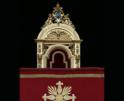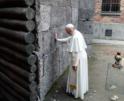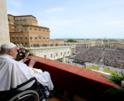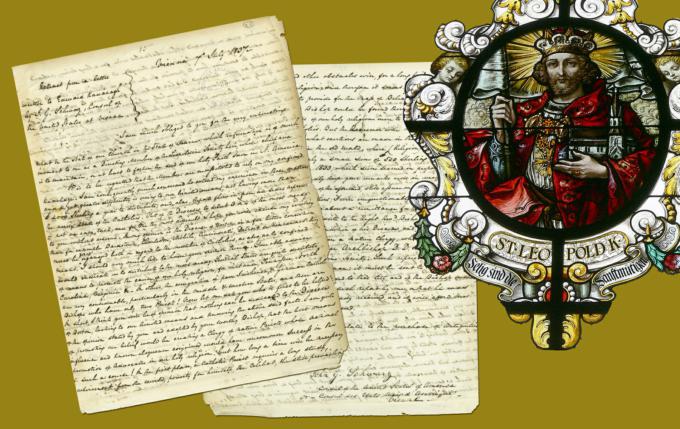
Culture
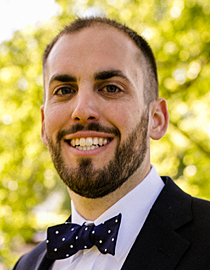
Lester
I had the pleasure of speaking with one of our regular readers who informed me of a reference to the Leopoldine Society with which I was not familiar, and thought I would share some background on this former missionary society and its connections to the Diocese of Boston.
The Leopoldine Society was founded in Vienna, Austria, in 1828 by Father Frederick Rese. A native of Germany, Father Rese was a missionary priest who joined the Diocese of Cincinnati, Ohio, in 1824, and four years later returned to Europe to solicit funds for the diocese. He gained an audience with Emperor Francis I of the Holy Roman Empire who permitted him to create a missionary society, a decision officially sanctioned by Pope Leo XII the following year.
The Leopoldine Society, or "Leopoldinen Stiftung," was named in honor of St. Leopold, the patron saint of Austria, and memorialized Maria Leopoldina, Empress consort of Brazil, Queen consort of Portugal, and late daughter of Emperor Francis II, who had died in 1826 at 29 years of age.
The society modelled itself upon the Society for the Propagation of the Faith, founded in Lyon, France, in 1822. Members were required to pray for the missions and contribute alms which were collected in Vienna and then distributed exclusively to missions in the United States. By 1861, 33 years after its creation, the society reported that it had contributed $436,000 to missions in the United States, but then saw a sharp decline. In its remaining 60 years, it could only raise about two-thirds of that amount, and officially disbanded in 1921.
Perhaps more important than these financial contributions were the activities of its missionaries in the United States. Some notable figures included St. John Neumann, Bishop of Philadelphia; Father Caspar Rehrl, founder of the Sisters of Saint Agnes; Father Joseph Salzmann, one of the first rectors of St. Francis de Sales Seminary in Milwaukee; and Father Rese who, in addition to founding the society, would become the first Bishop of Detroit. Many of these missionaries came at a time when the population of the United States was expanding into the Ohio and Mississippi River Valleys and they helped ensure Catholicism had a firm footing in those regions.
Among the missionaries was also Father Stephen Raffeiner. Better known for his work in New York, he was invited to Boston by Bishop Benedict Fenwick in 1835, and returned several times a year to minister to the city's 200-plus German Catholics in their native language. He also began collecting funds to construct a church for this community, and a contribution of $2,389 from the Leopoldine Society in 1841 helped pay for a plot of land on Shawmut Avenue. Three years later on this site, Holy Trinity Church, of which is he considered the founder, was dedicated.
There are few references to the Leopoldine Society in the archive, but one document is a letter written by John G. Schwarz, Consul of the U.S. in Vienna, dated July 7, 1837, which arrived enclosed in a letter from Edward Kavanagh to Bishop Fenwick dated Aug. 7, 1837. He writes Kavanagh asking him for information on the state of Catholic dioceses in the United States so that he could forward it to the Leopoldine Society to help them determine which were most in need of financial aid. Sadly, he writes, Boston was not being considered since many of the southern and western dioceses were in far greater need, having seen an influx of poor Irish and German immigrants.
The document also reveals that Bishop Fenwick's desire to establish a seminary must have been well known, since he goes on to discuss its merits. "I am quite of the opinion stated by you and adopted by your worthy Bishop, that the best means of promoting our belief would be creating a Clergy of native Priests whose national influence and known eloquence conjoined would have uncommon success in the promotion of Advocates in our holy religion." He tells Kavanagh to encourage Bishop Fenwick to write about this desire to the Leopoldine Society and they would reconsider sending aid to the diocese if it would help create a seminary there.
While there is no evidence the society contributed to the founding of a seminary, or to the Diocese of Boston with any regularity, we should remember them for the significant role, through both Father Raffeiner and a financial contribution, towards the establishment of a German Catholic parish.
- Thomas Lester is the archivist of the Archdiocese of Boston.
Recent articles in the Culture & Events section
-
Pope Francis and the persistent habit of 'maybe'Russell Shaw
-
Laying odds on papabili, and our vulgar churchElizabeth Scalia
-
Mourning Pope Francis: A Jewish meditation on his legacyMenachem Z. Rosensaft
-
Bishop Fenwick's appointment to Boston in 1825Rebecca Maitland
-
The call of Pope Francis' final Easter messageMichael Reardon


